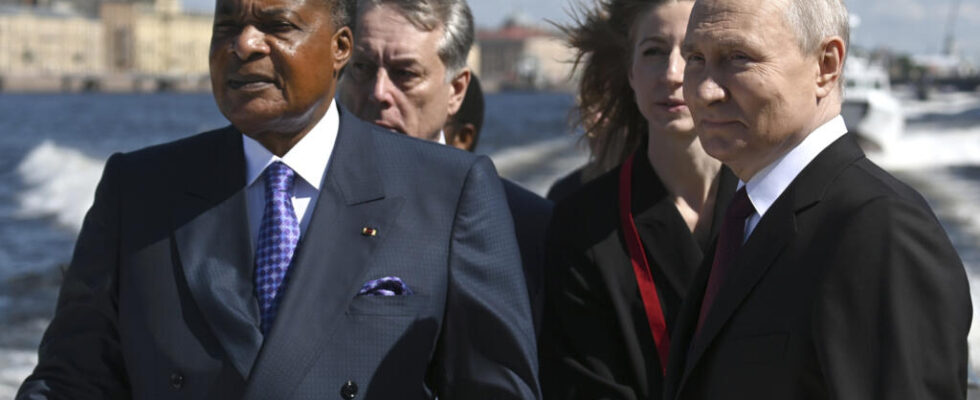Denis Sassou Nguesso is expected in Russia on Tuesday June 25 for a state visit. The President of the Republic of Congo left Brazzaville on Sunday June 23, at the invitation of his Russian counterpart Vladimir Putin for the 60th anniversary of diplomatic relations between the two countries, established in March 1964.
2 mins
The last meeting between Denis Sassou Nguesso and his Russian counterpart Vladimir Putin dates back to last year, in July 2023, for the Russia-Africa forum in Saint Petersburg. After a stopover in Dubai, Denis Sassou Nguesso is due to arrive in Moscow late Tuesday.
With the Congolese president, a delegation of more than 70 people has been announced, including several ministers such as that of Regional Planning, that of Foreign Affairs, that of Hydrocarbons and that of Higher Education. In addition, the Secretary General of the National Security Council and the President’s Personal Representative for Strategy.
Ahead of this state visit by Denis Sassou Nguesso, the Russian Minister of Foreign Affairs was in Oyo at the beginning of June, stronghold of the Congolese president. In front of the press and alongside his counterpart Jean-Claude GakossoSergei Lavrov then mentioned the wish of the two States to continue their military cooperation.
Also highlighted by the head of Russian diplomacy: reciprocal and coordinated Brazzaville-Moscow support in international bodies such as the United Nations. “ We appreciate that the Republic of Congo has an objective and balanced view on events related to Ukraine “, Sergei Lavrov declared at the time.
Among the multiple links between the two states: last February, representatives of the Congolese Labor Party participated in the Forum of activists against modern practices of neocolonialism, organized by the presidential United Russia party. And on the economic level, this visit should advance several joint projects linked in particular with the National Petroleum Company of Congo (SNPC).
Read alsoOn an African tour, the head of Russian diplomacy in Congo-B. to discuss the Libyan crisis
